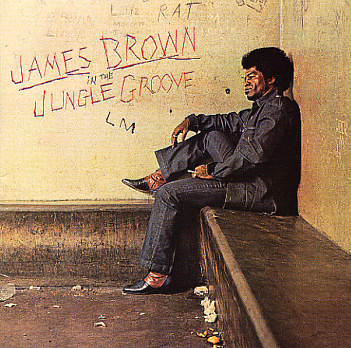30 Strong And A Gun To His Head� Pay Attention? By Aishah Shahidah Simmons (Repost)
 There have been and probably will be numerous articles on the January 16, 2007 RIAA raid of the Aphilliates Music Group studio and arrest of my brother Tyree “DJ Drama” Simmons and DJ Don Cannon. There have been and will be numerous articles on what the implications of this raid will not only have on the Aphilliates Music Group but on the entire mixtape business/game.
There have been and probably will be numerous articles on the January 16, 2007 RIAA raid of the Aphilliates Music Group studio and arrest of my brother Tyree “DJ Drama” Simmons and DJ Don Cannon. There have been and will be numerous articles on what the implications of this raid will not only have on the Aphilliates Music Group but on the entire mixtape business/game.
In the midst of those ongoing discussions, let’s not forget the reality that racism and sexism are alive and well in Ameri-KKK-a.
Tuesday, January 16, 2007 marked the first day of my supporting a three day fast that Black Women in Durham, North Carolina organized to expel and heal from the ongoing collective trauma that many of us who are victim/survivors of rape and other forms of sexual assault have been experiencing ever since members of the predominantly White Duke LaCrosse team were publicly accused of raping a Black woman in Spring of 2006. Little did I know, that while I supported my Spirit Sister-Survivors in Durham, North Carolina, that another assault against a member of my Blood family was about to happen.
No one will ever be able to explain to me why the hell a SWAT Team of at least 30 strong went charging into the Aphilliates Music Group studio as if they were doing a major drug or an illegal arms bust? Why did they need to put my brother Tyree (DJ Drama) and his cohorts face down on the ground with guns to their heads? Did the agents need to ransack the studio, confiscate cd’s featuring artist sanctioned original music not bootlegs, disc drives, computers, cars, ultimately stripping the studio of everything with the exception of furniture
Based on the January 16, 2007 Fox Atlanta News edition, when one of the agents said “Usually, we find other crimes during these types of busts.” Clearly the agents expected ( possibly wanted) to find drugs and/or illegal arms. K-9 dogs whose noses are trained to sniff and find drugs, were ultimately board with nothing to do.
So the question for me and the rest of the Portnoy-Simmons-Thwaites family is was a SWAT team needed? Was this solely about mixtapes? Would this have happened if this wasn’t a Black run company? One of the claims is that Tyree (DJ Drama) was racketeering. Well, this alleged racketeer is a legitimate businessman who played and continues to play a pivotal role in the careers of numerous known and unknown hiphop artists, which by direct extension helps the recording industry immensely. Tyree ( DJ Drama) is also a partner, a father, a brother, and a son.
When I think about all of the scandals in corporate Ameri-KKK-a (Enron and WorldCom to name a minute few)…I don’t ever recall hearing about any SWAT enforced raids. I don’t recall any images of Ken Lay or other top executives of corporations being forced to lay face down on the ground surrounded by SWAT agents with guns to their heads and K-9 dogs sniffing them. For a detailed expose on the evils that corporations all around the world do and get away with legally and illegally, check out the powerfully gripping documentaries “Enron: The Smartest Guys In the Room,” and “The Corporation.”
As Tyree’s (DJ Drama’s) sister and as a radical Black feminist lesbian social activist, I am beyond outraged at how the RIAA handled/orchestrated the raid. If he or anyone in the Aphilliates camp didn’t follow the directions of the agents, asked the ‘wrong’ questions,’or made the ‘wrong’ move during the raid, he and/or his cohorts could’ve been murdered in a twinkling of an eye. And for what? Selling mixtapes, which feature artist sanctioned original music?
The RIAA should be held accountable for their actions. They need to know that their violent response to addressing their accusations of racketeering was unacceptable.
There was (and is) no covert operation going on with the business of the Aphilliates; and yet the Aphilliates were treated as if they were public enemy number one.
I am explicitly clear that the music entertainment power structure has a very serious problem with people of Color making profits, on their terms, off a multi-billon dollar international industry that they created. Hip-Hop.
I am also clear that since the founding of Ameri-KKK-a, this type of state sanctioned racist and sexist treatment towards men and women of Color happens every single minute of every single day. Unfounded police raids are nothing new to countless communities of Color across this country.
So while we debate and discuss the legalities of mixtapes and the long term impact of what the January 16, 2007 raid of the Aphiliates studio will mean, we must not ever forget that innocent people were terrorized and incarcerated in the name of protecting the Recording Industry Association of America.
Aishah Shahidah Simmons is a Black feminist lesbian documentary filmmaker and social activist who recently completed the award-winning documentary NO!, which unveils the reality of rape, other forms of sexual violence, and healing in African-American communities.
www.NOtheRapeDocumentary.org
www.myspace.com/afrolez
 My
My 

 What did
What did  So celebrating the James Brown sound also means celebrating the musicians who created it. When he delayed the fourth and final beat of a measure, the drummer Clyde Stubblefield warped time in a way that helped inspire a whole constellation of rhythm-obsessed genres. Bobby Byrd (he of the famous “Yeah!†and “What?â€), Maceo Parker, Fred Wesley, Bootsy Collins, Lyn Collins, Vicki Anderson: to love James Brown is to love them too. And not enough has been written about Jimmy Nolen, the visionary guitarist whose spidery licks helped inspire two generations of post-punk bands. (When people talk about “angular†guitars, they often mean “Jimmy-Nolen-ish.â€)
So celebrating the James Brown sound also means celebrating the musicians who created it. When he delayed the fourth and final beat of a measure, the drummer Clyde Stubblefield warped time in a way that helped inspire a whole constellation of rhythm-obsessed genres. Bobby Byrd (he of the famous “Yeah!†and “What?â€), Maceo Parker, Fred Wesley, Bootsy Collins, Lyn Collins, Vicki Anderson: to love James Brown is to love them too. And not enough has been written about Jimmy Nolen, the visionary guitarist whose spidery licks helped inspire two generations of post-punk bands. (When people talk about “angular†guitars, they often mean “Jimmy-Nolen-ish.â€)



 It’s not just about the heat in the kitchen
It’s not just about the heat in the kitchen Celebrity chefs are role models for would-be restaurateurs
Celebrity chefs are role models for would-be restaurateurs Many believe they’ve got what it takes to run a restaurant
Many believe they’ve got what it takes to run a restaurant Fancy running your own restaurant?
Fancy running your own restaurant?
